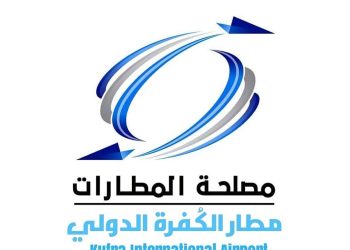By Sami Zaptia.
Tripoli, 25 November:
The Libya Summit 2012 concluded its three-day conference last Thursday (22 November) after an array of speakers . . .[restrict]including a few unbilled surprises. The Summit on transforming Libya to a modern society and economy had enjoyed a long list of local and international speakers on a rich variety of topics.
The newly appointed Minister of Telecommunications Osama Siala was an unexpected speaker on day two, and in his brief speech he welcomed the foreign visitors to Libya and the Summit and admitted that there was much development and work to be done in his sector and that he looked forward to contributing to that effort.
He was then followed by an interesting presentation by Faycal El Darwiche and Kostas Koulinas of Euromena Consulting on ‘’Prospects on ICT Future in Libya – the ICT sector as an enabler of economic diversification in Libya”.
Former Deputy Prime Minister Mustafa Abushagur was yet another surprise speaker who welcomed the foreign visitors and expressed his delight at their presence in Libya today. He stressed that Libya was moving forward, ready for rebuilding in partnership with the top suppliers of knowledge transfer.
Michel Deelan, the recently appointed Dutch Charges d’Affairs was happy to give a frank overview of how he saw the situation in Libya giving a balanced picture of the challenges Libya faces today and in the months and years ahead. But he was also keen to highlight all the positive opportunities awaiting the new Libya.
Leading businessman Husni Bey, in a macroeconomic overview on Libya insisted that Tripoli is a secure place to be in. The international media over exaggerated the insecurity in Tripoli, he insisted, adding that his international guests expressed great surprise once they were in Libya, saying that the media back home made it sound a lot worse than it is. ‘’It is as safe as any other capital in the rest of the world’’, Bey insisted.
Hatem Benfayed CEO of the Libya Housing Authority in his presentation ‘’Development of Existing and New Residential Projects’’ talked about the development of the housing sector and the need for a new vision in this vital sector by taking on a dual approach whereby Libya develops both existing projects as well as initiating new ones.
Alla Al-Senussi of the Libyan Heritage Trust gave an overview of Libya’s rich heritage. She looked forward to contributing further to that heritage and felt that despite Libya’s scars, its rich history provided hope for the future.
In his presentation, Abdulrahman Al-Ageli, vice president of the Libyan Youth Forum talked about youth and the problem of unemployment, and possible means of overcoming the obstacles that they face. He also talked about the challenges faced by the employers and means of overcoming them as well as empowering local talent.
Kevin Dunseath, Director of Global Education at Cisco in his ‘’Knowledge Grid: using technology to fast track change in the new Libya’’, stressed the need for building appropriate local capacity, stimulating economic growth and diversification and encouraging entrepreneurship.
Sabri Ebdewi, CEO of Greener Libya Inc. talked about enhanced oil recovery (EOR) techniques for mature fields, the production capacity of mature fields and the investment needed for using EOR and the various options used, including water, fire and gas. Filliz Katman from Istanbul Ayad University, on her part complemented Ebdewi’s presentation by talking about the need for increased security long term at oil installations to maintain and increase long term productivity.
On the final day Rida El Oakley, Libya’s WHO representative in Geneva outlined his roadmap for healthcare reform in Libya. He highlighted the recommendations of the recent Libyan National Health System conference in Libya and talked about the transformation of concepts in modern healthcare and the need for convenient access to healthcare services and amenities.
Adel Suliman from the General Electricity Generating Company of Libya (GECOL) talked about the the evaluation of ERP systems in state-owned enterprises, current business challenges, increased customer requirements, efficiency pressures, integrated information systems and challenges of congested administrative instructions.
Michael Opperman of WABAG talked about the resumption of water treatment projects in Libya and the role of foreign contractors in the sector.
Hasan Bentaher, Vice Chairman and Rida Bezan, Head of the Technical Cooperation Department for the Libyan Privatisation and Investment Board (PIB) then gave an overview of the Libyan investment laws and various sectors and opportunities available for foreign investors, which included tax free status, customs free importation of machinery, and the repatriation of capital and profit.
The three day conference was then concluded with a question and answer session to a panel of specialists where there was a frank discussion and review of the three days’ presentations and deliberations. [/restrict]







